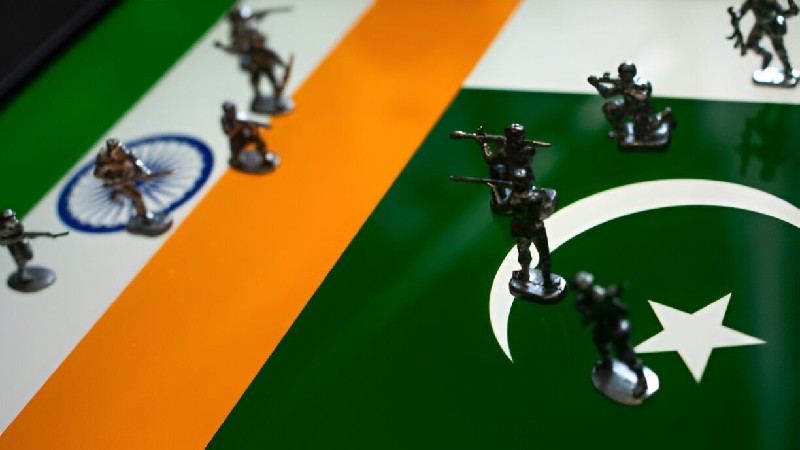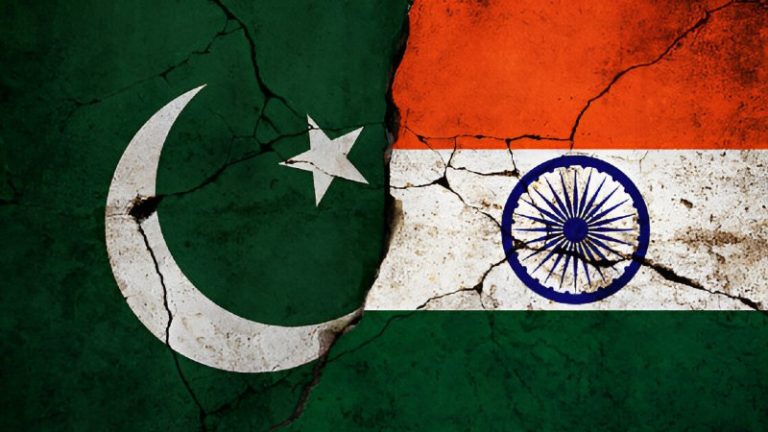The complex and often volatile relationship between India and Pakistan has long been a source of concern for the international community.
Understanding the UK’s Stake in the India-Pakistan War
The UK’s interest in the India-Pakistan war stems from a combination of historical ties, strategic considerations, and humanitarian concerns. As a former colonial power in the region, the UK has a unique understanding of the historical grievances and complexities that fuel the conflict. Furthermore, the UK maintains strong diplomatic and economic relationships with both India and Pakistan, making regional stability a key priority. The presence of a large diaspora population from both countries within the UK also adds a domestic dimension to the issue.
Key Factors Shaping the UK’s Position
Several factors influence the UK’s approach to the India-Pakistan war:
- Historical Legacy: The partition of British India in 1947 and the subsequent creation of India and Pakistan left a legacy of unresolved territorial disputes, particularly over Kashmir.
- Nuclear Proliferation: Both India and Pakistan are nuclear-armed states, raising the specter of nuclear escalation in the event of a full-scale war.
- Regional Stability: Instability in South Asia could have far-reaching consequences, impacting global trade, security, and the fight against terrorism.
- Counter-Terrorism: The UK is concerned about the potential for terrorist groups to exploit the conflict and use the region as a base of operations.
- Economic Interests: The UK has significant trade and investment interests in both India and Pakistan, which could be jeopardized by regional instability.
Beyond Mediation
While traditional approaches to the India-Pakistan war often focus on mediation and diplomatic solutions, the UK’s role in promoting long-term stability through:
UK’s Multi-faceted Approach
| Area of Focus | UK’s Role
The UK’s Role in Promoting Stability
The UK plays a crucial role in promoting stability in the region through various means:
- Diplomatic Engagement: The UK maintains open channels of communication with both India and Pakistan, using its diplomatic influence to encourage dialogue and de-escalation.
- Development Assistance: The UK provides development assistance to both countries, focusing on poverty reduction, education, and economic growth, which can help address some of the root causes of instability.
- Security Cooperation: The UK works with both India and Pakistan on counter-terrorism efforts, sharing information and expertise to combat the threat of terrorism.
- Support for International Institutions: The UK supports the role of the United Nations and other international organizations in promoting peace and security in the region.
Addressing Key Challenges

The UK recognizes the numerous challenges that hinder a lasting peace between India and Pakistan, including:
- The Kashmir Dispute: The unresolved territorial dispute over Kashmir remains the core issue, fueling tensions and mistrust.
- Cross-Border Terrorism: The issue of cross-border terrorism continues to be a major source of contention, with India accusing Pakistan of supporting militant groups.
- Nuclear Proliferation: The presence of nuclear weapons on both sides raises the stakes and increases the risk of escalation.
- Lack of Trust: Deep-seated mistrust and historical grievances make it difficult for the two countries to engage in meaningful dialogue.
Conclusion
The analysis of the India-Pakistan war from a UK perspective reveals a complex and multifaceted challenge that requires sustained engagement and a multi-faceted approach. The UK is committed to working with both India and Pakistan, as well as the international community, to promote a peaceful and stable future for the region. This commitment involves not only addressing the immediate crises but also working towards long-term solutions that address the root causes of the conflict. The UK believes that a stable South Asia is vital for global security and prosperity.
Frequently Asked Questions (FAQs)
Q1: What is the UK’s primary concern regarding the India-Pakistan war?
A: The UK’s primary concern is the risk of further military escalation, potentially leading to a wider conflict, especially given that both nations possess nuclear weapons.
Q2: How does the UK view the Kashmir dispute?
A: The UK views the Kashmir dispute as the core issue fueling tensions. It believes a lasting solution can only be achieved through peaceful dialogue, considering the wishes of the Kashmiri people.
Q3: What role does the UK play in promoting stability in the region?
A: The UK promotes stability through diplomatic engagement, development assistance, security cooperation on counter-terrorism, and support for international institutions.
Q4: Why is the UK concerned about cross-border terrorism in the India-Pakistan war?
A: The UK is concerned that terrorist groups could exploit the conflict, using the region as a base of operations, which could have implications for global security.
Q5: What is the UK’s stance on nuclear proliferation in the context of India and Pakistan?
A: The UK views nuclear proliferation as a critical concern, recognizing that the presence of nuclear weapons on both sides significantly increases the risk of escalation and the potential for catastrophic consequences.
Q6: What historical factors influence the UK’s perspective on the India-Pakistan situation?
A: The UK’s perspective is shaped by its historical legacy as the former colonial power, particularly the 1947 partition of British India, which left unresolved territorial disputes.
Q7: How does the UK balance its relationships with India and Pakistan while addressing the conflict?
A: The UK maintains strong diplomatic and economic relationships with both India and Pakistan. It uses these relationships to encourage dialogue, promote de-escalation, and advocate for peaceful resolutions, recognizing the importance of regional stability for its own interests.


